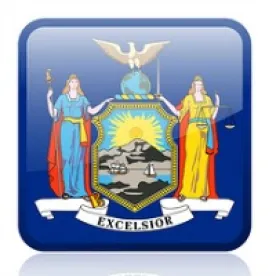On October 28, 2021, New York Governor Kathy Hochul signed into law Senate Bill S4394A, which amends section 740 of the New York Labor Law (NYLL) to enhance protections for private-sector employees who allege retaliation for reporting violations of and “law, rule or regulation.” While cases alleging whistleblowing and the reporting of unsafe working conditions have been on the rise since March 2020, Governor Hochul indicated a need to ensure employees’ ability to speak out, stating that “protecting workers must be part of our overall economic recovery efforts.” The law will take effect 90 days after its enactment, or on January 26, 2022.
The amendment expands upon existing protections for employees in the following ways:
-
The definition of “employee” now includes former employees and independent contractors.
-
The definition of “law, rule or regulation” now includes executive orders, judicial rulings, and administrative decisions.
-
“Retaliatory action” is now defined to include “adverse employment actions or threats to take such adverse employment actions against an employee in the terms of [sic] conditions of employment … that would adversely impact a former employee’s current or future employment.”
-
The definition of “retaliatory action” is further expanded to include actions taken by an employer that contacts or threatens to contact immigration authorities.
-
-
Employees are now protected from retaliatory actions “whether or not they were acting within the scope of their job duties.”
-
Employers are prohibited from taking any adverse action against an employee who “discloses, or threatens to disclose … an activity, policy or practice … that the employee reasonably believes is in violation of law, rule or regulation.” Prior to these changes, employees were required to have knowledge that the conduct they were reporting was an actual violation of a law, rule, or regulation.
As the law already noted, an employee who has not “made a good faith effort to notify his or her employer by bringing the activity, policy or practice to the attention of a supervisor of the employer and has [not] afforded such employer a reasonable opportunity to correct such activity, policy or practice” is not afforded the same protections.
The NYLL was further amended to extend the statute of limitations required for employees to institute civil actions alleging violations of section 740 from one to two years. Moreover, employees seeking remedies for violations of section 740 are now entitled to jury trials. Courts may now also order civil penalties up to $10,000, as well as front pay and punitive damages as additional relief.
Importantly, the NYLL now requires that employers inform employees of their rights and obligations under the law by posting a notice “conspicuously in easily accessible and well-lighted places customarily frequented by employees and applicants for employment.”
Employers may wish to review the above requirements to ensure their practices comply with the new obligations articulated in the law.





 />i
/>i

